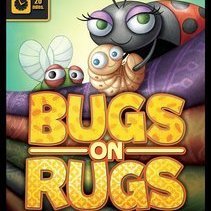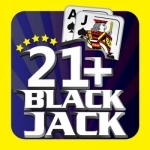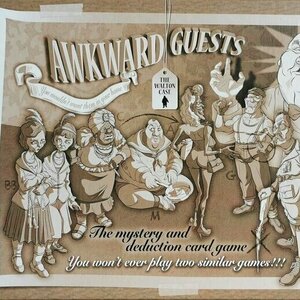Purple Phoenix Games (2266 KP) rated ICECOOL in Tabletop Games
Jun 25, 2019 (Updated Aug 13, 2020)
You and your Penguin buddies are so hungry that you decide to skip out on class early to go grab some snacks. But you’ve forgotten about the Hall Monitor! Their mission is to catch any unauthorized hall wanderers and send them back to class. Can you outmaneuver the Hall Monitor, or will you be caught and forced to go hungry until the end of class?
Disclaimer: I do not intend to rehash the rulebook in its entirety in this review, but rather provide a general overview of the rules and gameplay. To read the rules more in-depth, grab a copy of the game from your FLGS! -L
ICECOOL is a dexterity game in which players are trying to amass the most points over a number of rounds. Here’s how a round plays out. Select one player to be the Hall Monitor (called the Catcher) for the first round, and place their Penguin pawn in the kitchen box. All other players, aka the Runners, take their 3 colored fish tokens and attach them to the three corresponding doorways, and begin with their Penguin pawns in the classroom box. As a Runner, your goal is to collect your 3 fish tokens from their doorways. How do you do that? Flick your Penguin through a fish doorway to collect your snack. Yes, you read that right – flick. In this game, all movement is achieved by literally flicking your pieces throughout the boxes. To collect a fish, you must pass through the corresponding doorway completely in one single flick. Each time you collect a fish, draw the top card from the fish deck and keep it hidden from your opponents. Your other goal? Avoid the Catcher. If at any point, your Penguin comes into contact with the Catcher, you must forfeit your Hall Pass to the Catcher.
As the Catcher, your goal is to collect the Hall Pass of every other player. You achieve this goal by flicking your Penguin into any of the Runners. Turn order is as follows: Runners-Catcher, Runners-Catcher, etc., until the end of the round is triggered. The round is over when the Catcher has collected Hall Passes from every other player, or any Runner has collected all 3 of their fish. At the end of the round, each player collects 1 fish card per Hall Pass in their possession. So if you were caught by the Catcher, you’re outta luck! For the next round a new player is selected to be the Catcher, and play continues as above. The game ends once every player has taken a turn as the Catcher. Count up the points from your collected fish cards, and the player with the most points wins!
So a game of flicking Penguins around some boxes – sounds pretty simple, right? Yes and no. ICECOOL admittedly does not really require any serious strategy. Yes, you are trying to collect all 3 of your fish, but you’re mainly playing keep-away from the Catcher. And as the Catcher, you’re “It” in this quasi-game of Tag. So strategic, this is not. On the other hand, mastering the art of flicking your Penguin is a long and arduous process. Ok, it’s not arduous, but it is tricky to master! ICECOOL really puts your dexterity to the test to see if you have the proper form and control to move your Penguin to exactly where you want it to go. Half of the fun of this game is all the whiffed flicks and the comically accidental misdirections. The rulebook offers some flicking techniques to try out before your first game, and they are actually pretty helpful. I’ve not yet been able to achieve the jumping flick, but maybe one day I will rise to that level.
One other super neat thing about ICECOOL is the game setup. You’re playing with boxes of varying sizes. But here’s the kicker: they all nest into each other!!! So for storing, it looks like you just have one box. But in reality, there are 4 other boxes hidden inside. This concept is not one I’ve seen before in any other game, so that just makes ICECOOL a little bit more unique and interesting for me. Since I’m talking about the boxes, let me touch on components. The boxes are all of great quality, and are sturdy enough to hold up to clashing penguins. The Penguins themselves are good solid plastic, and I know they will last forever. Be careful though, flicking too hard might hurt your fingers! The deck of fish cards are a standard card quality. The artwork of the game is cute and thematic, and overall it’s a fun, immersive experience.
ICECOOL is not a game that I pull off the shelf at every game night. But it is one that is light enough, and entertaining enough, that it certainly gets a good amount of gameplay from my collection. Whether you are using it as a nice, short filler game, or you’re playing with some young’uns, it makes for a happy atmosphere full of energy and happiness. And that’s why Purple Phoenix Games gives ICECOOL a brrrrrrrrrilliant 18 / 24.

Pocket Wiki for Hearthstone: Heroes of Warcraft
Reference and Utilities
App
Looking for help or the latest tips for the game Hearthstone: Heroes of Warcraft? This all-in-one...

Guess What Charades - Phone on heads, dont look up
Games and Entertainment
App
Features: * 20 hilarious categories * 1000s of words * Video recordings of players * Adult section...

Kemet: Blood and Sand
Tabletop Game
The epic Egyptian game Kemet is reborn with a new revised edition! With Kemet: Blood and Sand,...

Vivid Memories
Tabletop Game
Every stick is a sword. Every bike is a steed. Every memory is a possibility. Vivid Memories is a...

Lanterns: The Harvest Festival
Tabletop Game
The harvest is in, and the artisans are hard at work preparing for the upcoming festival. Decorate...
2015Boardgames

Bugs on Rugs
Tabletop Game
So many bugs crawling around on beautiful rugs! Ants like to travel in big colonies. Fireflies love...
CardDraftingGames CardGames 2019Games

Blackjack 21 + Free Casino-style Blackjack game
Games and Entertainment
App
Get a casino quality Blackjack experience right on your iPhone, iPad, or iPod Touch! Download...
Purple Phoenix Games (2266 KP) rated Awkward Guests in Tabletop Games
Aug 6, 2020
Mr. Walton has been murdered! You have been called in to investigate and get to the bottom of this gruesome mystery. By interrogating the suspects and the household staff, searching for clues, and examining the crime scene, you must decide WHO the killer is, WHY did they commit the murder, and HOW it was done. There may or may not even be an accomplice that needs to be caught too. Put your deduction skills to the test as you work to be the first investigator to solve the case!
Disclaimer: I do not intend to rehash the entire rulebook in this review, but rather give a general overview of the rules and gameplay. To read the entire rulebook, check out the game at your FLGS or directly from the publisher! -L
Awkward Guests is a card game of hand management, trading, and deduction in which the players are trying to be the first player to solve the murder of Mr. Walton. The game is actually pretty simple to play. To start, each player receives a hand of 6 cards and a case tracking sheet. The cards will have one or more references (case information) on them, as well as a value of 1-3 points, depending on the reliability of the information presented on the card. On your turn, you will ask for information about two different references in which you are interested. The other players will then look through their cards, and offer some or all that pertain to the chosen references in trade to the active player. The active player may then choose a player with whom to trade, giving that player any number of cards, as long as their value equals or exceeds the value of the cards received in trade. Look at your new cards, make notes on your case tracking sheet, and play continues to the next player. After all players have inquired and traded cards, players have the opportunity to solve the mystery. You must know WHO, HOW, and WHY, and possibly the identity of the ACCOMPLICE depending on case difficulty, in order to solve the mystery. If nobody is ready to solve, everyone discards their hand down to 3, and draws new cards to a hand size of 6. A new round then begins, and play continues until one player successfully solves the mystery.
When you get down to it, Awkward Guests is easy to learn and play. It mostly consists of trading cards to learn information. That’s it. And that’s what makes it a great game, in my opinion. Although it feels more involved than regular Clue, the gameplay itself is very similar and that familiarity is reassuring. One thing that elevates Awkward Guests above Clue is the fact that it requires so much more strategy than original Clue. In Clue, when asking for information, you are asking 1 specific opponent for information, and they have to provide it if they have it. In Awkward Guests, you are able to ask all opponents for information, and they can offer as much or as little information as they want. It increases the amount of strategy required to play, and takes it from a simple grid movement memory game, to one that encourages deduction and compromise. Since players are trading cards, you never know who is holding what cards at any given time, and that makes it harder to pinpoint the information you may need. You can’t just memorize another player’s hand of cards, because on any given turn that hand has completely changed. Along those lines as well, you have to decide what information you are willing to trade, in hopes of receiving useful information in return. You don’t want to just trade back the same cards to the same players in an effort to stunt their investigation, because that could deter them from trading with you in the future. You have to decide when is the right time to trade, and what information you are willing to hand to your opponents, because you need to be receiving new information as well.
Another brilliant thing about Awkward Guests is the amount of replayability. Each case uses a different combination of cards, and with so many cards, that means that thousands of different game decks could be generated and played as individual cases. The game design and card system boasts a possible total of 3,600 case solutions, each reached through these different card deck combinations. No matter how many times you play, it is almost guaranteed that you will never play the same case twice. That being said, the biggest downside of Awkward Guests for me is the actual game setup and teardown. Each case deck requires certain cards, so that means to set up, you have to search through all 243 cards and pull out only those required for the selected case. And then after the game, you must sort them all back into their correct order. That just takes a bit of time, and makes it a game that can’t just be played on the fly.
One other downside for me when playing Awkward Guests are the player screens. Each player receives a screen to block their case tracking sheet from opponents. As you learn information, you write it on your sheet to help keep track of your notes and accusations throughout the game. The player screens are also reference sheets, providing much gameplay information to alleviate the need to reference the rulebook at every turn. The downside is that there is just SO MUCH information in the player screens. It is quite overwhelming, and honestly, makes the game seem more complicated and confusing than it really is. I appreciate the effort to provide that cheat-sheet, but it needs to be majorly edited and redacted to be truly useful.
Let’s talk components. The game comes with some high quality double-sided case tracking sheets, and nice sturdy cards and cardboard components. It’s pretty simple, but really gets the job done effectively. The artwork is pretty basic and the color scheme is mostly monochromatic. It may not be the most exciting game to look at, but the lack of colors makes it feel appropriately thematic.
Overall, Awkward Guests is a good step-up game from Clue. It requires strategy, deduction, and even though the game is ultimately competitive, selective cooperation is a key to success. As a huge fan of Clue as a child, I can definitely say that I am a fan of Awkward Guests as an adult. Originally printed in a different language, this game was brought to Kickstarter with an English version in 2018, and I am certainly thankful that the decision was made to reprint it in English! If you like deduction games with a twist, I would absolutely recommend giving this one a shot. Purple Phoenix Games gives Awkward Guests a mysterious 17 / 24.

Numbers League
Education and Games
App
Numbers League is made for ages 5 to Adult. "My kids beg to play this game." -GeekDad, Wired.com...

